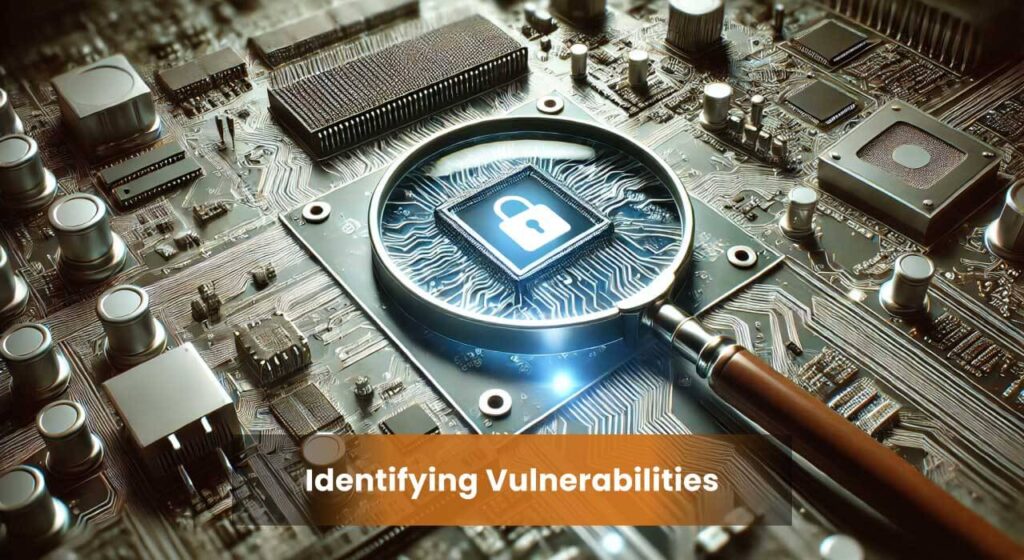
Cybersecurity Insurance: A Shield for UAE SMEs
Cybersecurity insurance is a financial safeguard designed to protect businesses from the financial repercussions of cyberattacks. As the digital landscape evolves, so too does the sophistication and frequency of cyber threats. Small businesses in the United Arab Emirates (UAE) are increasingly vulnerable to these attacks, with potential consequences ranging from financial loss to reputational damage.
A report by [Insert reputable cybersecurity firm or research institution] revealed a significant surge in cyberattacks targeting small and medium-sized enterprises (SMEs) in the region. These attacks can result in substantial financial losses due to data breaches, system downtime, and legal liabilities. To mitigate these risks, cybersecurity insurance emerges as a crucial component of a comprehensive risk management strategy.
This article delves into the intricacies of cybersecurity insurance, providing small businesses in the UAE with a comprehensive understanding of its benefits and how to navigate the insurance landscape effectively. It will explore the evolving cyber threat landscape, the role of insurance in risk mitigation, key coverage options, and best practices for selecting and utilizing cybersecurity insurance.
Understanding the Cyber Threat Landscape

Cyber threats encompass a wide range of malicious activities aimed at compromising digital systems, networks, and data. Common threats include ransomware, which involves encrypting a victim’s data and demanding a ransom for its release, phishing, a deceptive tactic to acquire sensitive information, and data breaches, where unauthorized access to confidential information occurs.
Small businesses in the UAE are particularly susceptible to cyberattacks due to limited IT resources and a perception of being less attractive targets. However, the reality is that these businesses often handle sensitive customer data and financial information, making them lucrative targets for cybercriminals. Successful attacks can result in substantial financial losses due to data recovery costs, business interruption, and legal expenses. Moreover, the damage to a company’s reputation can be irreparable, leading to customer churn and difficulty attracting new business.
The Role of Cybersecurity Insurance

Cybersecurity insurance offers financial protection against the potential consequences of cyberattacks. This coverage typically encompasses expenses related to data breaches, including costs incurred for data recovery, notification of affected individuals, public relations efforts, and legal fees. Moreover, it can provide compensation for business interruption losses arising from system downtime or reputational damage.
It is essential to distinguish cybersecurity insurance from general liability insurance. While the latter protects against bodily injury or property damage claims, cybersecurity insurance specifically addresses cyber-related risks. By safeguarding against the financial fallout of cyberattacks, cybersecurity insurance empowers small businesses to focus on recovery and business continuity rather than bearing the full brunt of the incident’s costs.
Assessing Your Business's Cybersecurity Risk

A cybersecurity risk assessment is a critical step in safeguarding a business from cyber threats. By systematically evaluating potential vulnerabilities and threats, organizations can identify areas of weakness and prioritize mitigation strategies. A comprehensive risk assessment involves several key components.
Asset identification entails cataloging all valuable digital assets, including hardware, software, data, and intellectual property. Threat analysis involves identifying potential cyber threats that could target the organization, such as ransomware, phishing, and data breaches. Vulnerability assessment focuses on pinpointing weaknesses in IT systems, networks, and applications that could be exploited by malicious actors.
While businesses can conduct a self-assessment using available resources and guidelines, engaging a professional cybersecurity firm is often recommended for a thorough and unbiased evaluation. Experts can provide in-depth analysis, identify hidden risks, and offer tailored recommendations to enhance overall security posture.
Key Coverage Options for Small Businesses

Cybersecurity insurance policies offer a range of coverage options to address various cyber risks. First-party coverage protects the insured business itself, covering expenses such as data recovery, forensic investigations, and public relations costs in the event of a data breach. Third-party coverage, on the other hand, protects the business from claims made by third parties, such as customers or clients, due to a data breach.
Cyber extortion coverage is becoming increasingly important as ransomware attacks become more prevalent. This coverage helps businesses manage extortion demands and provides financial support for incident response.
Beyond these core coverages, additional options can be tailored to specific business needs. Business interruption coverage compensates for lost income during system downtime caused by a cyberattack. Data recovery coverage assists in restoring lost or corrupted data. Crisis management coverage provides support for public relations and legal expenses in managing a cyber incident’s aftermath.
For example, a UAE-based e-commerce business might consider cyber extortion coverage to protect against ransomware attacks that could disrupt operations and expose customer data. Additionally, business interruption coverage would be essential to mitigate financial losses during system downtime.
By carefully assessing their specific risks, small businesses can select the appropriate coverage options to build a robust cybersecurity insurance policy.
Choosing the Right Cybersecurity Insurance Policy

Choosing the right cybersecurity insurance policy necessitates a thorough evaluation of various factors. Coverage limits, which define the maximum amount an insurer will pay for a specific claim, should align with the potential financial impact of a cyberattack. Deductibles, representing the portion of a loss the insured bears before the insurer pays, influence premium costs. Understanding policy exclusions, or circumstances not covered by the policy, is crucial to avoid surprises during a claim.
Thorough examination of policy documents is essential to grasp the nuances of coverage. Policyholders should pay close attention to definitions, conditions, and limitations. Comparing multiple insurance providers and quotes is also vital to finding the best value. Factors such as insurer reputation, financial stability, claims handling process, and additional services offered should be considered. Ultimately, the chosen policy should comprehensively protect the business against cyber risks while fitting within the overall risk management strategy.
Cost Considerations and Budgeting

Cybersecurity insurance premiums are influenced by various factors, including the business’s industry, annual revenue, and overall cybersecurity risk profile. High-risk industries or businesses with a history of cyber incidents may face higher premiums. Conversely, organizations with robust cybersecurity measures in place can often negotiate lower rates.
To manage insurance costs effectively, businesses can implement proactive cybersecurity measures to reduce risk. Additionally, increasing the policy deductible can lower premiums, although it also increases the financial responsibility in case of a claim.
Budgeting for cybersecurity insurance and other related expenses is essential for financial planning. Allocating a specific portion of the annual budget to cybersecurity can help ensure adequate resources are available for insurance premiums, risk assessments, employee training, and IT security tools.
Cybersecurity Best Practices to Mitigate Risk

Proactive cybersecurity measures are essential for safeguarding small businesses from cyberattacks. By implementing robust security practices, organizations can significantly reduce their vulnerability to breaches and minimize potential financial losses.
Fundamental cybersecurity best practices include comprehensive employee training on recognizing and preventing cyber threats, such as phishing scams and social engineering tactics. Protecting sensitive data through encryption, access controls, and regular backups is paramount. Network security measures, including firewalls, intrusion detection systems, and regular software updates, are crucial for safeguarding against unauthorized access.
While cybersecurity insurance provides a financial safety net, it should not replace proactive risk mitigation efforts. A comprehensive approach that combines insurance with robust security practices offers the most effective protection against cyber threats. By investing in prevention and preparedness, small businesses can enhance their resilience and reduce the likelihood of experiencing a devastating cyberattack.
While implementing robust security practices is essential, small businesses often face budget constraints. Fortunately, a wealth of free cybersecurity resources can assist in building a strong defense. For a comprehensive guide on free cybersecurity resources tailored for small businesses, refer to our companion article, ‘A Guide to Free Cybersecurity Resources for Small Business Owners‘.
Cybersecurity insurance serves as a critical safeguard for small businesses operating in the UAE’s increasingly complex digital landscape. By protecting against the financial repercussions of cyberattacks, it enables businesses to focus on recovery and growth rather than being overwhelmed by unforeseen costs.
To effectively manage cyber risks, conducting a thorough cybersecurity risk assessment is essential. By understanding potential vulnerabilities, businesses can implement appropriate security measures and explore suitable insurance options. For additional guidance and resources, consider consulting with cybersecurity experts or industry associations.
Categorized in:
Comments